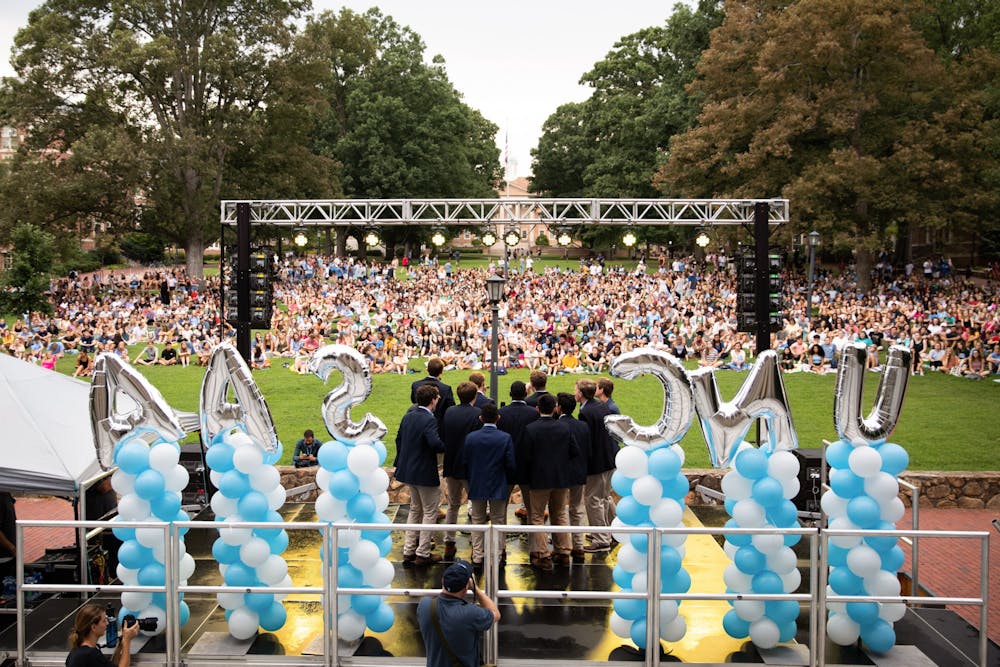“Pitch Perfect” may have secured a cappella a spot on the map, but the UNC a cappella community has a lot more going for it than this movie’s popularity alone.
For some students, a cappella simply means late-night dorm serenades and recruitment in the Pit. For others, a cappella is a family.
A cappella has been gaining momentum at UNC since the 1977 creation of the Clef Hangers, UNC's first a capella group. Over the past 10 years, a cappella’s popularity soared, and the growing number of a cappella groups on campus has fostered close-knit communities.
This decade ushered in two new a cappella groups on campus: the Tarpeggios, in 2010, and Samaa in 2011.
Samaa has made a name for itself as the only South Asian fusion a cappella group in the state. The group performs original arrangements that combine traditional South Asian music and American pop hits.
Maina Edula, one of the group’s directors, said this cultural focus helps Samaa stand out in the sea of a cappella at UNC.
“It definitely adds an element of diversity,” Edula said.
In addition to reaching out to other a cappella groups, Samaa also works frequently with other South Asian performance groups.
On the other side of campus, the MedUNCedoos have created their own unique community. The UNC School of Medicine’s a cappella group was created in 2009 and found its footing over the following years. President Elitza Koutleva, a second-year grad student, said the group provides a welcome break from the rigor of medical school.




